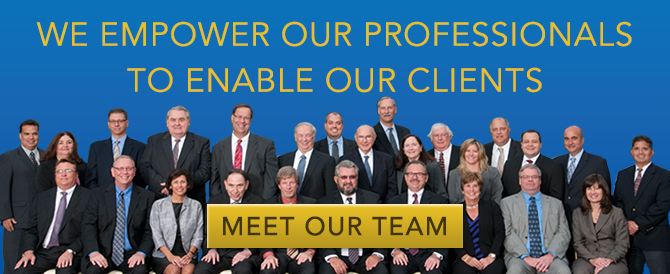 Do you need a tax planner for your company? It's important that you make the right selection. An experienced and knowledgeable tax planner can be a valuable advisor for any business. Taxes are probably one of your largest expenses. The right tax planner can minimize that expense and boost your bottom line. They can also provide you with strategic advice to help you find efficiencies and cost savings in your business.
Do you need a tax planner for your company? It's important that you make the right selection. An experienced and knowledgeable tax planner can be a valuable advisor for any business. Taxes are probably one of your largest expenses. The right tax planner can minimize that expense and boost your bottom line. They can also provide you with strategic advice to help you find efficiencies and cost savings in your business.
Of course, the key is finding the best tax planner for a company. Whether that tax planner is a CPA, a financial advisor, a consultant, or even a tax preparer, you need to make sure they have the experience and knowledge to address your needs.
No two tax professionals are the same. They can have different specialties, different sets of knowledge, and different views on what types of strategies and tactics to use. How can you be sure that a tax planner is well-suited for your business?
By asking some good questions, you can easily determine whether you and the tax planner are a good fit. Here are five traits you want to see in the best tax planner for a company:
1) They can admit that they're not experts at everything.
Every tax planner has a specialty, both in experience and knowledge. Good tax professionals will tell you where their strengths are and where they're weak. If they don't have the experience or skill set to serve you, they should tell you. They should also be happy to work with other financial partners to help provide better service in areas where they're not as strong.
If a tax planner tells you that he or she is an expert in everything, you can be sure that statement isn't accurate. There is something that they don't have expert knowledge on. The bigger concern should be why they won't tell you.
Ask a tax planner about both their strengths and weaknesses. If they're willing to discuss their weaknesses, that's at least a sign that they're honest and forthcoming. That's a good sign. If the areas where they're a little weak aren't concerning to you, then it could still be a good fit.
2) They have a sincere interest in your business.
Good tax professionals should be curious about your business. They should ask about how you started your business, why you do what you do, and what makes your business so great. They should ask not only because they're interested, but also so they can provide quality advice.
If a tax planner doesn't seem to be interested in you or your business or if they only talk about themselves, you may want to keep looking.
3) They share your tolerance for risk.
A tax planner for a company also needs to ask you questions to determine tolerance for risk. There are lots of ways to plan for taxes. Some planners are very aggressive with deductions and credits. Others are more conservative. It's critical that you and your tax planner are on the same page.
Bounce a few deductions off the tax planner to better understand their thoughts. If their approach is more aggressive than you're comfortable with, you should keep looking. Conversely, if they're too conservative, you should schedule more interviews. It's better to interview numerous planners than to find out you're a bad fit after the fact.
4) You understand what they're talking about.
Taxes can be complicated and you have too much on your plate to become a tax expert. After all, that's why you're hiring a tax planner. The tax planner should work to simplify the process for you, not make it more complicated. You want a planner that speaks in layman's terms and also discusses tax strategy in terms of how it impacts your business.
If your tax planner uses too much jargon or technical terms, try speaking with another tax professional. Also, if you come out of a meeting with your tax planner with more questions than answers, you may want to look for an alternative.
5) They have a good team.
No man - or woman - is an island. Every professional needs help. The truth is, you may not get a lot of face time with your professional. They'll have other clients to tend to. In those instances, you're going to be dealing with they're support staff.
Ask the tax professional how long he's had employees on staff. A high amount of turnover could indicate a problem. Also, ask about their qualifications. Are they simply assistants or are they able to provide tax advice as well?
6) You like them.
While you and your tax planner don't have to be best friends, it's always good to work with someone you like. If you and your tax planner have a good relationship, you'll be able to communicate more easily and you'll be more likely to get honest and straightforward answers.
Also, while a personal relationship isn't a requirement with your tax planner, it certainly helps them understand your needs better. If they know that your kids are getting ready to go to college or that you're helping with a parent's medical care, they may be able to offer advice. They also may be able to refer you to other clients or business associates who can help.
Don't just hire any tax planner. You want the best tax planner for a company. You want one that is aligned with your needs, goals, and risk tolerance. A good way to find one is to ask for referrals from your friends and business partners. A friend who has had a good experience with a tax professional will be in good position to provide a name.
Once you've collected a number of names, schedule introductory meetings. Look for the things discussed here and ask questions that are specific to your business and tax needs. Remember, there's no not amount of due diligence that's excessive. Do your homework and you'll likely be happy with your final selection.

